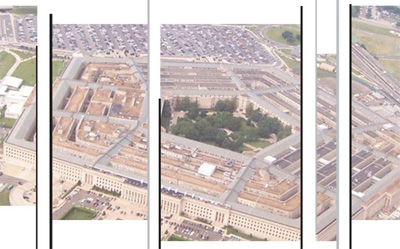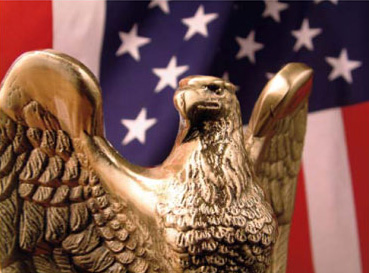Published in C&K Magazine: Vol #1 Issue #2 – Date: 2006
By Jeffrey H. Corbett Editor & Publisher
It was 1986 and I was in New York for the first time. My associate and I were in “The City” on business. During the off hours, like most visitors, we toured New York as much as possible. One evening at dusk we found ourselves at the foot of an impressive elevator bank where a man wearing a tuxedo greeted us. “Welcome to the Windows of the World, this gentleman said. He must have uttered those words literally thousands upon thousands of times. They haunt me today. The elevator doors opened and within seconds the two of us were catapulted 110 floors to the top of the World Trade Center.
 Does God have favorites? Does he or she with all the wisdom of the universe choose one people over another? Does our place of birth which results in nationality, culture and frequently religion, doom us or empower us? Do you have the right to tell me your god is better than mine? Will you die for it?
Does God have favorites? Does he or she with all the wisdom of the universe choose one people over another? Does our place of birth which results in nationality, culture and frequently religion, doom us or empower us? Do you have the right to tell me your god is better than mine? Will you die for it?
The Dark Ages, specifically the time between 500AD to 1,000AD was a period in human history where surprisingly little is known. Turmoil was the human condition: Rome was gone, urban life had vanished, illiteracy was everywhere, barbarian hordes warred for land – certainly not representative of a period that most in the civilized world would aspire to repeat. The Crusades followed. Starting with a speech given that by Pope Urban II on November 27, 1095, approximately four hundred years ensued with Christians trying to impose their beliefs, by force, on the rest of the world. The dogs of war were unleashed. A millennium of time has passed. How much have we learned?
In the business world, one discovers early on to avoid discussing religion and politics. Passions run so deep on these subjects that you are more likely to offen rather then endear. After September 11, 2001 the collision of values caused by religion, politics and business may never have been so interwined. So here we are stuck at the intersection of these three principles. “The Who” that once lamented in a song; “new boss…same as the old boss.” History repeates iteself.
We simply do not learn.
The difficulties we confront are not faced by one nation, people or religion but by all of mankind. Like it or not we are all tied together. Like it or not we have the military might to end our existence or the beginnings of a technology capable of greatness beyond our wildest dreams. Challenges abound and, in the subsequent environment, tolerance and intelligent leadership is at premium.
Yet, since that terrible day in September, radical positions using visceral appeal have surfaced with their own, seemingly heartless, agendas. In the midst of a national tragedy, while mourning families suffered from previously unimaginable actions, others could not wait to spin their rhetoric. They demonstrated a lack of sensitivity defies description.
 A shocking case in point occurred during a September 13, 2001 broadcast of “The 700 Club” television show. The inflammatory nature of these comments verge on being unpatriotic and hate mongering. Both Jerry Falwell and Pat Robertson suggested that “pagans” and other Americans whose lifestyle and political beliefs they listed during the broadcast and differed from their own had helped the attack happen by immoral behavior.
A shocking case in point occurred during a September 13, 2001 broadcast of “The 700 Club” television show. The inflammatory nature of these comments verge on being unpatriotic and hate mongering. Both Jerry Falwell and Pat Robertson suggested that “pagans” and other Americans whose lifestyle and political beliefs they listed during the broadcast and differed from their own had helped the attack happen by immoral behavior.
Many would happily see unrelated matters come into play. It is, therefore, incumbent upon the silent majority in predominately Muslim, Jewish or Christian states to shout down this insanity and offer a reasonable voice or a terrible price will eventually be paid. It will be paid with blood and in the name of religion. Fanatics do not know their plight.
In this atmosphere, the offshore business world is an easy target. But is it really part of the problem? A plausible answer to that question is both yes and no. Those jurisdictions that have proven to be lax in regulation of the financial markets have obviously been short-sighted and perhaps become their own worst enemy. If you want to be truly objective, however, you must acknowledge that some of the largest financial scandals in history have occurred in the strict environment that is the United States. The 1991 Bank of Credit and Commerce International (BCCI) springs to mind. Therefore, the logical conclusion is that regulation alone is not the answer. It is also important to note, many countries typically referred to as tax havens have, in reality, been very co-operative with anti-money laundering legislation.
We should be leery of those who wish to drag ancillary and often unrelated issues into this already complicated picture. They wish to do nothing more than promote their own frequently skewed principles. With this in mind, in the international business arena the Organization for Economic Cooperation and Development (OECD) lurks with its “one world – one tax” mentality. The Bush administration was quick to recognize its flaws and distanced itself from the OECD prior to September 11th. Now, however, it seems to be flirting with the OECD. We hope this is not the case.
Targeting smaller jurisdictions as the OECD has done will do nothing except serve those looking at this as an opportunity to use pressure tactics in order to raise global tax rates. Terrorists do not worry about taxes.
As you may recall the OECD was originally founded in 1961. Its predecessor was the Organization for European Economic Co-operation (OEEC) which was formed to administer American and Canadian aid under the Marshall Plan for reconstruction of Europe after World War II. Since taking over for its forerunner, the OECD has a stated objective to build strong economies in its member countries, improve efficiency, hone market systems, expand free trade and contribute to development in industrialized as well as developing countries.” Most recently, however, this Paris based organization has looked to extend its influence far beyond traditional objectives to include non-member nations. So much has been written about the OECD and its Harmful Tax Practices Committee that there is little purpose in revising it here. Its standing order, however, to blacklist sovereign governments because of incentives they can offer in a free marketplace seems well, un-American. The September 11th heartbreak should not be maneuvered into a rallying point for such self-serving organizations.
Prime Minister Lester B. Bird of Antigua and Barbuda outlined what many feel. “The scheme has its genesis in the left-wing ideologies of certain European Treasury Departments that believe in the notion of high taxation. These ideologues have caused the European member nations of the OECD to be the highest taxed nations of the world. Unable to tax their population any further without running the risk of not being re-elected, they have decided to set upon companies and persons whose investments attract either low tax or no tax from foreign jurisdictions. The purpose is to force elected governments and legislatures to fix tax rates within a framework dictated by the OECD for the benefit of some OECD members.”
Tax havens actually promote international commerce and freedom. They provide creditable protection against one’s own government becoming too powerful and the proverbial invisible bureaucrat imposing restrictive policies. Surprisingly, depending upon one’s perspective, almost every country represents a tax haven of some sort. For example, in the United States foreign investors do not pay tax upon interest earned from bank Certificates of Deposits. A shift in this policy would result in large sums of money looking for investment elsewhere. Most, however, would never place the US in a tax haven category.
Great care must be taken before painting the subject matter with a broad stroke. The remedy is to be found in demonstrating courage and the ability to focus on the real objective. Our patriotic duty is to guard personal liberties and promote affluence through the expansion of international business and a free market place. Thus, through education, hope and freedom we can drag the rest of the world into the 21st century.
The solution, however, does not mean turning a blind eye. It is not unpatriotic to question ones government. Rather, it is incumbent upon us to hold our government accountable for its policies. We should insist that a “New Deal” foreign policy be developed that addresses the economic disparity between developed nations and underdeveloped nations. Future policy must be more meaningful than merely handing out money; it should pave the way for significant economic relationships. We should insist upon alternative fuel sources being developed. As it stands, the United States is the world’s only superpower but is tethered by an umbilical cord to the Middle East and its oil. This is simply an unacceptable weakness. Finally, many United States Government agencies have been asleep at the switch and should be held accountable. The extent of influence demonstrated by airline lobbyist groups and their lack of regard for anything but the bottom line points to major flaws in the system. This cannot be allowed to stand. International business must be able to travel with safety and confidence. You cannot teleconference a handshake.
Absolutely none of these issues are beyond our reach. If we maintain A our resolve, all can be accomplished. The greatest single tribute to those who have been lost would be to make 9-11 a turning point in history. Let’s bring opportunity and freedom to every corner of the globe. Let’s do our part as the international business community and expand free markets and capitalism beyond the enemy’s worst nightmares.
Dedicated to my father’s good friend, his son and all those who perished September 11, 2001.



